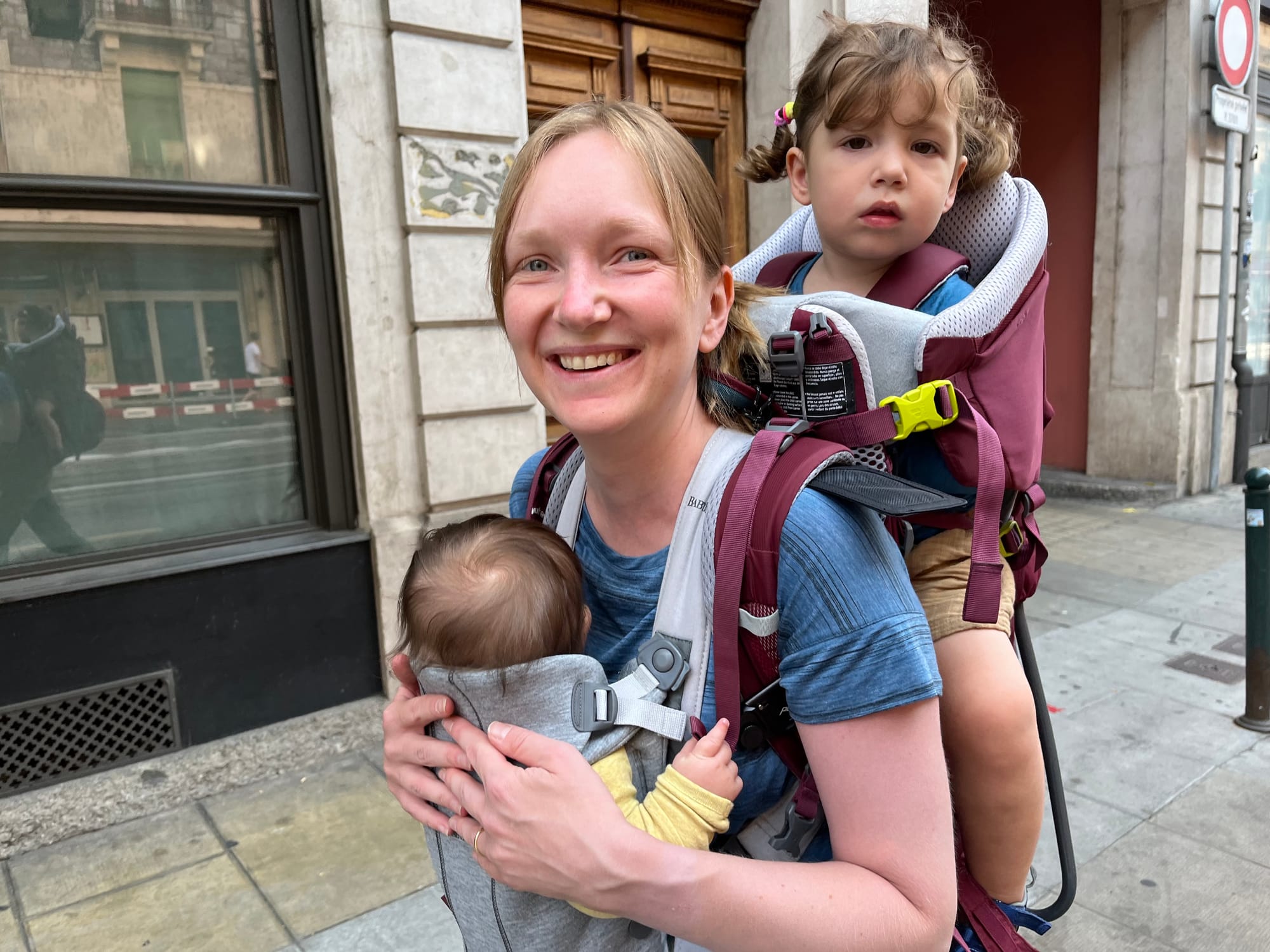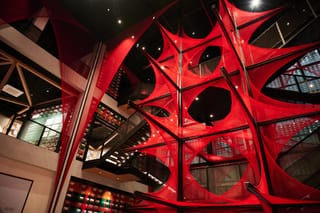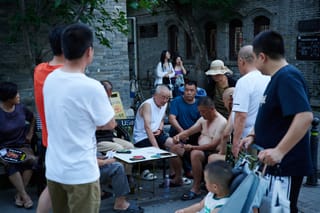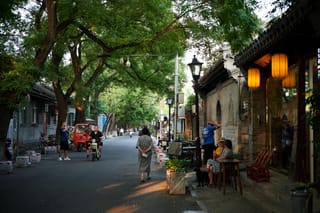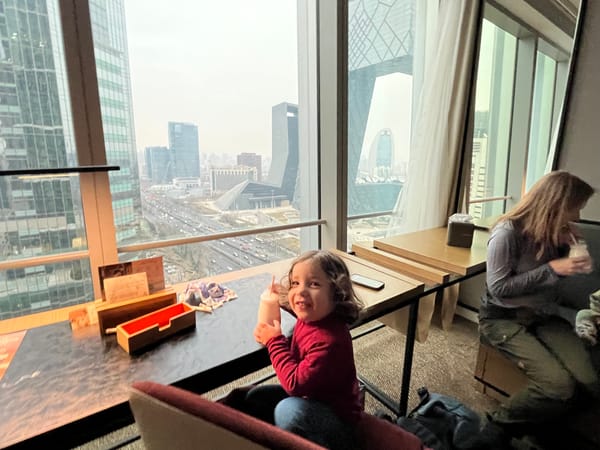
Luxury travel in China
From high-end hotels to world-class entertainment — China has you covered!
Share this post:
One of the things most people probably don‘t associate with China is luxury, high-end travel.
Most people I know think of China as it was 10-15 years ago — an interesting place with delicious food and fascinating culture, but a destination predominantly for backpackers and low budget travellers, where travelling is difficult and food safety is a major concern.
We were certainly in this mindset before our first trip — it was supposed to be a continuation of our adventure we have planned before Covid.
But the reality of China travel in 2025 couldn‘t be further from this outdated picture!
China offers you high-end hotels, business class seats on high-speed trains, luxury private transport that can be booked directly from your phone, world-class performances with VIP sitting, Michelin star restaurants, 24h spas… and all of that still for a price that will not break your budget and is accessible for many middle class earners!
So if you are the kind of person that wants to relax on your holiday and be well taken care of, China should be on your radar!
Cities from the future
China is a massive country and there are a lot of differences between the cities.
You might have heard about the tier system that is used in China to assess the size and development stage of various Chinese cities. This same system can be used to understand what you can expect from different cities when traveling tehre.
If you opt for 2nd or 3rd tier cities, you can experience interesting cities, with unique feel and culture, but slightly smaller (on Chinese scale) and less developed, maybe more difficult to navigate — we certainly enjoyed the ones we visited.
But if you enjoy spoiling yourself on your holiday, do shopping in luxury malls and experience everything „best in class“, you won‘t be disappointed by what China‘s most developed cities have to offer.
Beijing
Beijing has this fascinating mix of imperial history and modernity.
The city feels powerful and monumental — wide boulevards, massive government buildings, and then suddenly you're looking at 600-year-old temples.
The luxury hotels here are world class, and somehow $200/night gets you what would cost at least $500 in London. It's a city that takes itself seriously, and the high-end experience reflects that.
Shenzhen
If you want to see where China is actually heading, come to Shenzhen.
This place is insanely futuristic — everything is new, everything runs on your phone, and it all just works. The whole city feels like it was built last week with unlimited budget — and it only celebrated its 40th birthday in 2024!
The city has been built with sustainability in mind, balancing modern amenities with huge green spaces, parks and nearby wilderness.
It's 20 minutes to Hong Kong by train, which gives you an interesting contrast between old and new China.
Guangzhou
Guangzhou is where you get luxury without losing the authentic Chinese atmosphere. It's less international than Shanghai, more lived-in and real.
You can stay in gorgeous hotels but still feel like you're experiencing actual Chinese life, not a sanitized tourist version. The food scene here is incredible — this is where Cantonese cuisine comes from.
Chengdu
Chengdu has this wonderfully relaxed vibe that's rare in Chinese cities. People actually seem to enjoy life here, and without China it is famous for its vibrant night life scene.
There are plenty of new luxury hotels, shopping complexes, restaurant and beautiful promenades.
For nature lovers, there is a 100km ring road exclusively for cyclists, creating an escape from modern busy life.
Chengdu has been designated as UNESCO City of Gastronomy, a further proof of its diverse and exceptional local cuisine.
Sanya
China's tropical beach destination — think pristine coastline with Chinese efficiency and infrastructure.
It's less chaotic than Southeast Asian beach resorts, more organized, and you get international luxury brands at Chinese prices.
I haven‘t included Shanghai on that list — deliberately.
Shanghai is of course a modern city, but as it was one of the first ones being modernized and opened up for foreign investment, a lot of problems poured in there with that decision.
Sure, there are plenty of new buildings being built, but there is also legacy from the times when China was much poorer.
Shanghai will of course have plenty of high-end hotels, restaurants and entertainment, but it is harder to find and (for us at least) not that different from what you can find in London or Paris.
Luxury accomodation
Chinese luxury hotels operate at a different price-to-quality ratio than Western equivalents.
For the price of very basic accomodation in European and Western capitals (150-200$) you can spend a night in a 5 star international hotel with a view, and great quality of service. Unlike in Western hotels, you can expect a fully-sized swimming pool and properly equipped gym.
What we experienced traveling with kids is that you often get a free upgrade to a bigger room when available to allow you for a more comfortable stay, and kids get little souvenirs and mascotts as welcome gift.
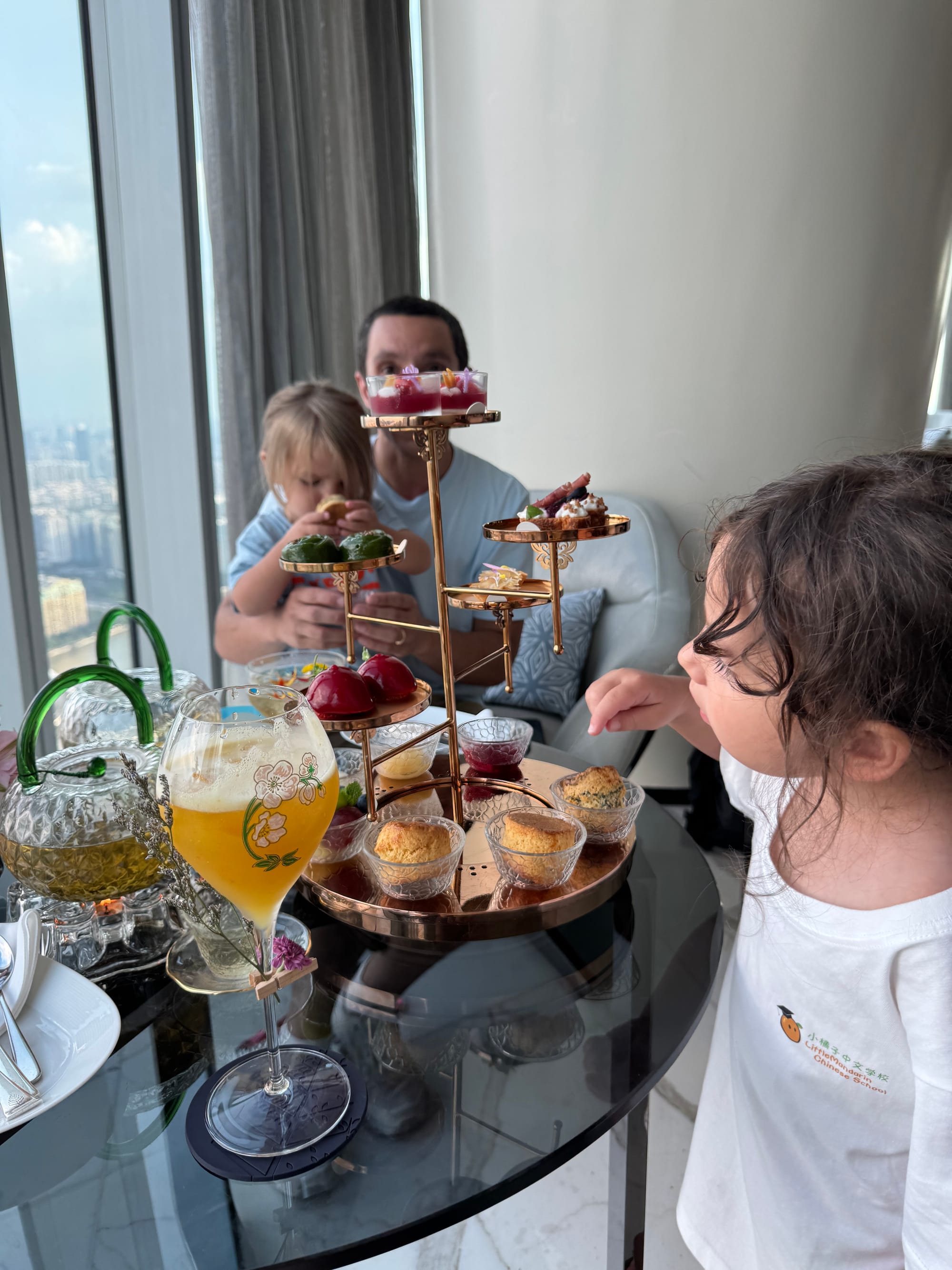
High-end high-speed travel experience
You might already know that China is the only country in the world with an extensive high-speed train network.
While this way of traveling is significantly more expensive, it is still withing range of what is affordable. We travelled in Business Class on Harbin-Beijing route and it cost us around 200$ per seat to travel over 1000km!
What You Get in Business Class:
- Fully reclining leather seats (not the standard rigid seats)
- 1-1 or 2-1 seating configuration, depending on the train (vs. 3-2 in second class, 2-2 in first class)
- 1-1 trains have sliding door for more privacy
- Complimentary beverages and snacks
- Priority boarding and dedicated waiting lounges
- Significantly more luggage space

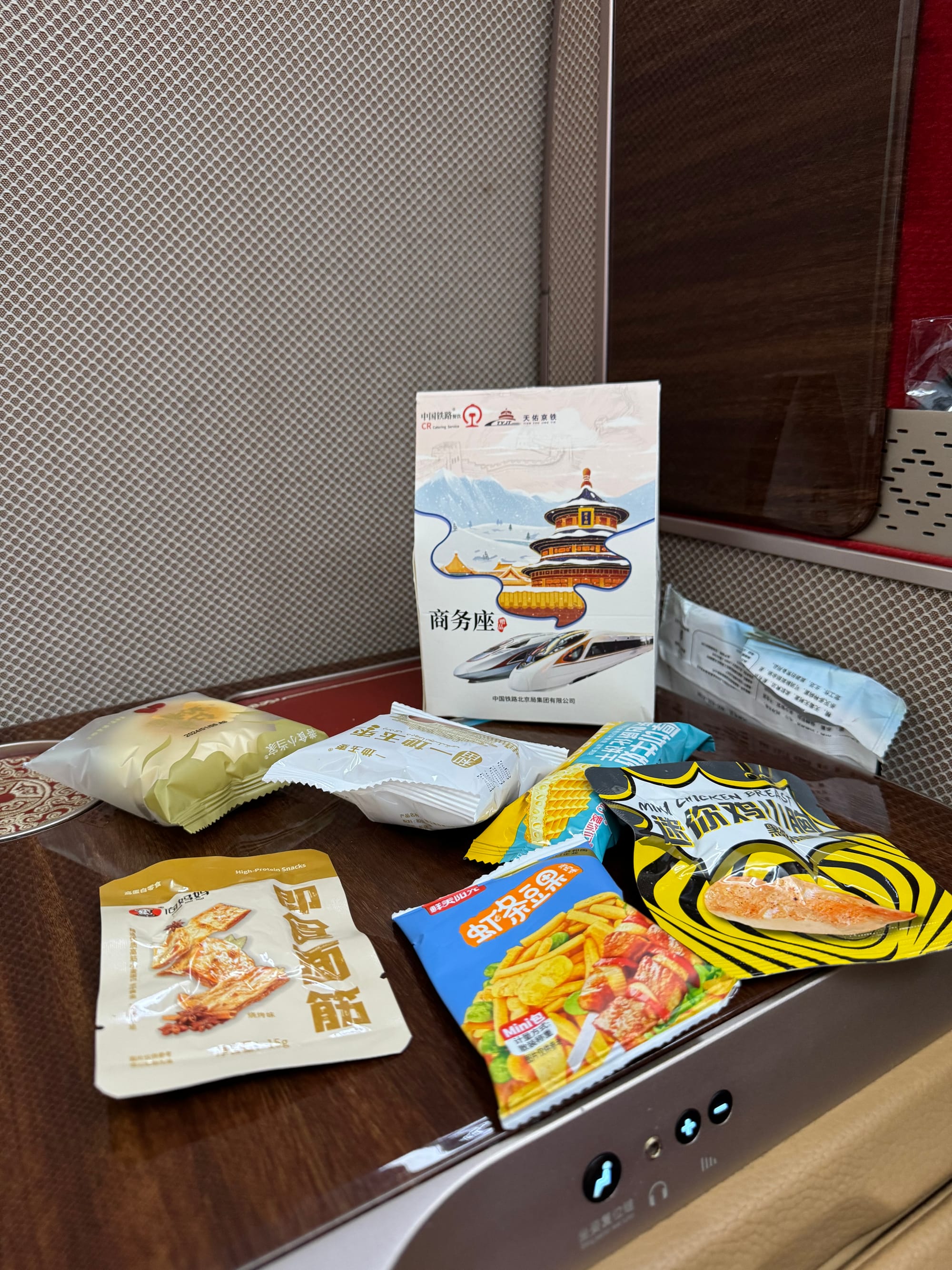
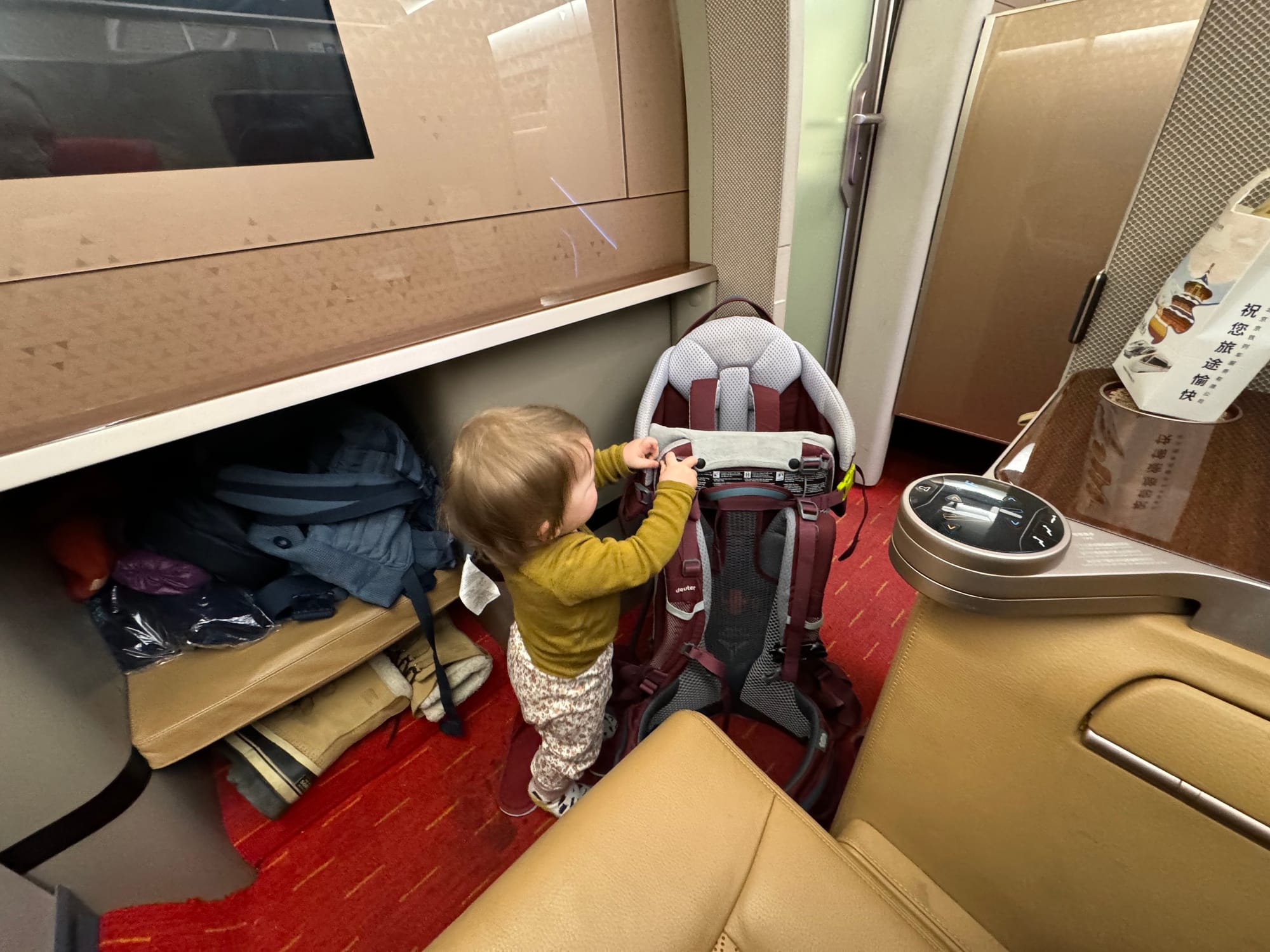
DiDi — the premium way
While DiDi is the equivalent of the Western Uber, the level of service you can get goes up very high.
We usually go for the standard version, but once after Chimelong Circus show, faced with the possibility of the long wait, we opted to include Lux option in our selection — the car that showed up exceeded our expectations. A driver dressed in a fancy electric car, dressed in white shirt and black vest, water bottles available for passengers.
For us it is maybe too much for what we need, but if you want to experience traveling around the cities in style, that is an option for you.
And the price you would pay for that service? Probably between 20-40$ to run across the city!
World class performances
We are quite amazed by the development of high-end tourism in China — there is clearly a lot of effort put into catering for more affluent travellers.
And part of it is the increasing numbers of different kinds of shows and performences (often with VIP seating options) that are world class and it seems to be a trend all across China.
The scenography, music, lights, setting — all aimed at awing the audience with high expectations.
Whether you go to a theater show, opera, or circus, you can expect to be inspired and amazed, and not spend the kind of money same entertainment requires in many western cities.
Top restaurants
While you can eat amazing food for really cheap, that is not mandatory.
If you rather sit in a fancy restaurant with dishes that are both delicious and fancy in their presentation, you will not be disappointed.
China's culinary scene has exploded in the past decade. Cities now host Michelin-starred restaurants, celebrity chef establishments, and innovative fusion cuisine — at prices that make fine dining accessible for special occasions, not just the ultra-wealthy.
Fine dining banquet with performance
A trend that is gaining popularity in recent years is a banquet-style fine dining experience.
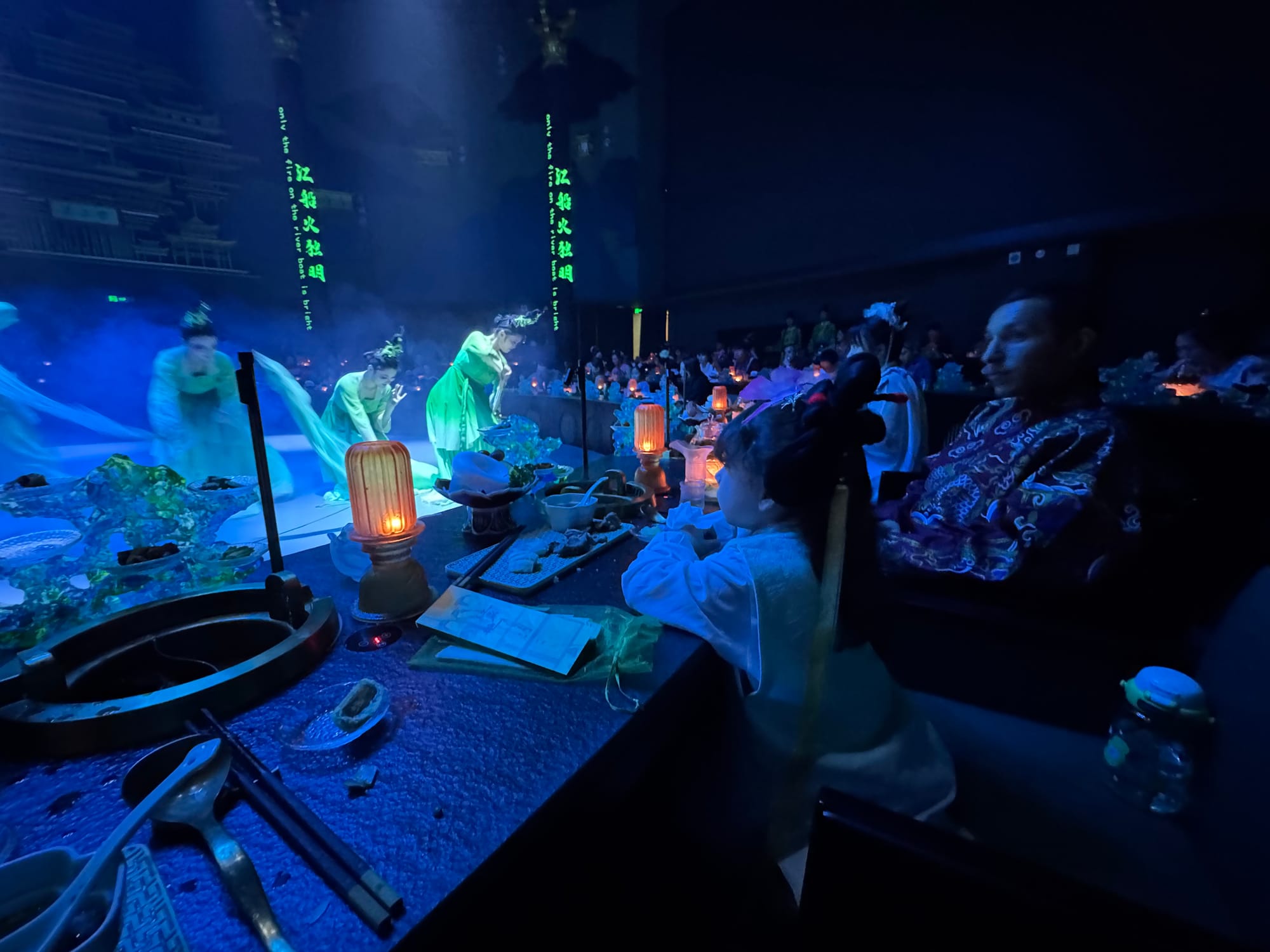
24 hour spa craze
This is something we haven‘t tried ourselves, and maybe is not our cup of tea, are the 24 hour spas that are now a craze on Chinese social media.
I am not even sure if they should be called spas — it is more like an all-incorporating, overindulgent entertainment center!
You can get a massage, swim and walk around in a robe all day, but you also can eat as much as you want and whatever you want, play video games, watch movies, take a nap…
